- Home
- Jerry B. Jenkins
Riven
Riven Read online
Table of Contents
Part One
1
2
3
4
5
6
7
8
9
10
11
12
13
14
15
16
17
18
19
20
21
22
23
24
25
26
27
28
29
30
31
32
33
34
35
36
37
38
Part Two
39
40
41
42
43
44
45
46
47
48
49
50
51
52
53
54
55
56
57
58
59
60
61
62
63
64
65
66
67
68
69
70
71
72
73
74
Epilogue
Praise for Riven
* * *
RIVEN
by
JERRY B. JENKINS
* * *
Tyndale House Publishers, Inc.
Carol Stream, Illinois
Visit Tyndale’s exciting Web site at www.tyndale.com
TYNDALE and Tyndale’s quill logo are registered trademarks of Tyndale House Publishers, Inc.
Riven
Copyright © 2008 by Jenkins Entertainment, LLC. All rights reserved.
Cover photograph by Erik Peterson. Copyright © 2008 by Tyndale House Publishers, Inc. All rights reserved.
Author photo copyright © 2007 by Mikel Healy Photography. All rights reserved.
Designed by Erik M. Peterson
Scripture quotations are taken from the Holy Bible, New Living Translation, copyright © 1996, 2004, 2007 by Tyndale House Foundation. Used by permission of Tyndale House Publishers, Inc., Carol Stream, Illinois 60188. All rights reserved.
This novel is a work of fiction. Names, characters, places, and incidents either are the product of the author’s imagination or are used fictitiously. Any resemblance to actual events, locales, organizations, or persons living or dead is entirely coincidental and beyond the intent of either the author or the publisher.
Library of Congress Cataloging-in-Publication Data
Jenkins, Jerry B.
Riven / Jerry B. Jenkins. p. cm.
ISBN-13: 978-1-4143-0904-0 (HC)
ISBN-13: 978-1-4143-2283-4 (Palm)
ISBN-13: 978-1-4143-2281-0 (MS Reader)
ISBN-13: 978-1-4143-2282-7 (Mobipocket)
ISBN-13: 978-1-4143-2284-1 (Sony)
I. Title. PS3560.E485R57 2008 813'.54—dc22 8014001
Special Copyright Notice
The text of this book is an eBook file intended for one reader only. It may be used by that reader on computers and devices that he or she owns and uses. It may not be transmitted in whole or part to others except as stated above.
Up to 500 words of this work may be quoted without written permission of publisher, provided it is not part of a compilation of works nor more than 5 percent of the book or work in which it is being quoted. The full title, author's name, and copyright line shall be included. No more than 500 words of this work may be posted on a web site or sent electronically to other users. In all uses of quoted material from this book, the full copyright line shall appear in a readable type size where the text appears. The author's name shall not be used in the title of a web site or in the advertising of the site. The author's name may not be used on the cover of any other book in which a portion of this material is quoted without written permission of Tyndale House Publishers.
Quotes in excess of 500 words, use of the text as part of a compilation, use of text that is greater than 5 percent of the book in which it will be quoted, or other permission requests shall be directed in writing to Tyndale House Publishers, Permissions Dept. 351 Executive Drive, Carol Stream, IL 60188.
To Steve Musick
Let the water and the blood,
From Your riven side which flowed,
Be of sin the double cure,
Save from wrath and make me pure.
—from “Rock of Ages”
Author’s Note
This is the novel I have always wanted to write.
I determine whether a novel idea has merit by how long it stays with me. Do I find myself telling the story to my wife and other confidants? Is it the type of tale that will draw me back to the keyboard every day?
Two-thirds of my published books have been novels, and only three have had that effect on me. Oh, I give my all to every one, but special joy and anticipation attend those that genuinely feel like the best ideas.
In your hands lies my fourth such labor of love.
The two main characters have remained in my memory since high school forty years ago. The story idea is perhaps twenty years old. And those mystical, interweaving elements I hope make it all work have been tugging at me for more than a decade.
If a novelist has a life’s work, this is mine. I hope in the end you agree and that Riven stays with you long after the final page.
Jerry B. Jenkins
Colorado
Christus
Heri, Hodie, Semper
HEINOUS AS ANY MURDER CAN BE,
THE CRIME IS NOT THE STORY HERE.
Rather, along with many other elements—seemingly unrelated at first blush—the crime serves as mere impetus to what really happened. And that proved unforgettable to any old enough to remember.
The unnamed state in which these events occurred had for nearly two centuries flaunted its renegade spirit, thumbing its nose at Washington. A succession of maverick governors, including one who engineered the state’s four-year secession during the Civil War, had served to fashion the commonwealth into a virtual landlocked island unto itself. Only Louisiana rivaled its no-nonsense prisons, only Texas its record on capital punishment.
The state’s leaders and citizens were as proud of their tough-on-crime reputation as they were of the state’s highway system, constructed and maintained wholly apart from federal funds and linking to the interstates only at the borders. The governor was as proud of the state’s decades-old reputation for budget surpluses as the legislature was of its historic capitol building.
Our two main characters, however, had never before given a thought to matters of state and could not have imagined how such would so thoroughly determine their fates.
Part One
1
Adamsville State Penitentiary | Death Row
With the man’s first step, the others on the Row began a slow tapping on their cell doors.
The tiny procession reached the end of the pod, and the rest of the way through security and all the way to the death chamber was lined on either side with corrections officers shoulder to shoulder, feet spread, hands clasped behind their backs, heads lowered. As the condemned reached them, each raised his head, snapped to attention, arms at his sides, feet together.
What a tribute, he thought. Who would ever have predicted this for one who had, for so much of his life, been such a bad, bad man?
October, seventeen years earlier | Touhy Trailer Park
&nb
sp; Brady Wayne Darby clapped his little brother on the rear. “Petey, time to get up, bud. We got no water pressure, so . . .”
“Again?”
“There’s a trickle, so give yourself a sponge bath.”
“Ma already gone?”
“Yeah. Now come on. Don’t be late.”
At sixteen, Brady was twice Peter’s age and hated being the man of the house—or at least of the trailer. But if no one else was going to keep an eye on his little brother, he had to. It was bad enough Brady’s bus came twenty minutes before Peter’s and the kid had to be home alone.
Brady poured the boy a bowl of cereal and called through the bathroom door, “No dressing like a hoodlum today, hear?”
“Why’s it all right for you and not for me?”
Brady closed his eyes and shook his head. “Just do what I say, okay?”
“Whatever.”
“Straight home after school. I got practice, so I’ll see ya for dinner.”
“Ma gonna be here?”
“She doesn’t report to me. Just keep your distance till I get home.”
Brady rummaged for cigarettes, finally finding five usable butts in one of the ashtrays. He quickly smoked two down to their filters, tearing open the remaining three and dumping the tobacco in his shirt pocket. Desperately trying to quit so he could stay on the football team, Brady couldn’t be seen with the other smokers across the road from the school, so he had resorted to sniffing his pocket throughout the day. If he couldn’t cop a smoke from a friend after last class and find a secluded place to light up, he was so jittery at practice he could hardly stand still.
Brady grabbed his books and slung his black leather jacket over his shoulder as he left the trailer, finding the asphalt already steaming in the sun. Others from the trailer park waiting for the bus made him feel as if he were seeing his own reflection. Guys and girls dressed virtually the same, black from head to toe except for white shirts and blouses. Guys had their hair slicked back, sideburns grown retro, high-collared shirts tucked into skintight pants over pointy-toed shoes. Oversize wallets, most likely as empty as Brady’s, protruded from back pockets and were attached to belt loops by imitation silver or gold chains.
So they were decades behind the times, even for rebels. Brady—an obsessive movie watcher—was a James Dean fan and dressed how he wanted, and the rest copied him. One snob called them rebels without a clue.
Brady scowled and narrowed his eyes, nodding a greeting.
The fat girl with the bad face, whom Brady had unceremoniously dumped more than a year ago after he had gotten to know her better than he should have in the backseat of a friend’s car, sneered as she cradled her gigantic purse to her chest. “Still trying to play jock?”
Brady looked away. “Leave it alone, Agatha.”
“More like a preppy,” one of the guys said, reaching to flick Brady’s schoolbooks.
“You definitely don’t want to start with me,” Brady said, glaring and calling him the foulest name he could think of. The kid quickly backed off.
Brady knew he looked strange carrying schoolbooks. But the coach kept track.
The trailer park was the last stop on the route, and the yellow barge soon drifted in, crammed with suburbia’s finest: jocks, preppies, and nerds—every last one younger than Brady. No other self-respecting kid with a driver’s license rode the bus.
In a life of endless days of open-fly humiliation, this boarding ritual was the most painful. Brady took it upon himself to lead the group. They could hide behind him and each other, avoiding the squints and stares and held noses as they slowly made their way down the aisle looking, usually in vain, for someone to slide over far enough to allow one cheek on the seat for the ride to school.
“Phew!”
“. . . brewery . . .”
“. . . smokehouse . . .”
“. . . B.O. . . .”
Brady neither looked nor waited. His daily goal was to find the most resolute rich kid and make him move. Today he stared down at the short-cropped blond hair of a boy who had been trying to hide a smile while pretending to study. Brady pressed his knee against him and growled, “Move in, frosh.”
“I’m a sophomore,” the kid huffed as he made room.
On the way home, Brady would ride the activities bus. There he would for sure be the only one of his type, but football earned him his place among the jocks, cheerleaders, thespians, and assorted club members. Wide-eyed at first, they seemed to have grudgingly accepted him, though they still clearly saw the trailer park as a novelty. One evening as he trudged from the bus, Brady had been sure everyone was watching. He turned quickly, only to be proven right, and felt face-slapped. At least the trailer park was the first stop at the end of the day.
11 a.m. | First Community Church | Vidalia, Georgia
Reverend Thomas Carey knew he would not be getting the job when the head of the pastoral search committee—a youngish man with thick, dark hair—dismissed the others and asked Grace Carey if she wouldn’t mind waiting for her husband in the car.
“Oh, not at all,” she said, but Thomas interrupted.
“Anything you say to me, you can say to her.”
The man put a hand on Thomas’s shoulder and spoke softly. “Of course, you’re free to share anything you wish with your spouse, Reverend, but why don’t you decide after you hear me out?”
Grace assured Thomas it was all right and retreated from the sanctuary.
“You tell her everything?” the man said.
“Of course. She’s my—”
“She knows we saw you at your request, not ours, and that we didn’t feel you warranted a visit to hear you preach?”
Thomas Carey pressed his lips together. Then, “I appreciate your meeting with us today.”
The committee chairman pointed to a pew and leaned against another as Thomas sat. “I need to do you a favor and be frank with you, Reverend. I can tell you right now this is not going to go your way. In fact, we’re not going to bother with a vote.”
“That doesn’t sound fair.”
“Please,” Dark Hair said. “I know these people, and if I may be blunt, you rank last on the list of six we’ve already interviewed.”
“Shouldn’t you poll the others on their—?”
“I’m sorry, but you have a three-year Bible college diploma, no real degree, no seminary training. You’re, what, in your midforties?”
“I’m forty-six, yes.”
“Sir, I’ve got to tell you, I’m not surprised that your résumé consists of eight churches in twenty-two years—the largest fewer than 150 members. Have you ever asked yourself why?”
“Why what?”
“Why you’ve never been successful, never advanced, never landed a church like ours . . .”
“Surely you don’t equate success with numbers.”
“Reverend Carey, I’m just trying to help. You and your sweet wife come in here, I assume trying to put your best foot forward, yet you look and dress ten years older than you are, and your hair is styled like a 1940s matinee idol.”
Dark Hair extended his hand. “I want to sincerely thank you for your time today. Please pass along my best wishes to your wife. And be assured I meant no disrespect. If it’s of any help, I’m aware of several small churches looking for pastors.”
Thomas stood slowly and buttoned his sport jacket. “I appreciate your frankness; I really do. Any idea how I might qualify for a bigger work? I don’t want to leave the ministry, but our only child is in her second year of law school at Emory, and—”
“When there are many Christian colleges that would give a minister huge discounts?”
“I’m afraid she would be neither interested in nor qualified for a Christian school just now.”
“I see. Well, I’m sorry. But the fact is, you are what you are. None of your references called you a gifted preacher, despite assuring us you’re a wonderful man of God. If you cannot abide your current station, perhaps the secular marketplace i
s an option.”
5 p.m. | Head Football Coach’s Office | Forest View High School
Brady hadn’t even thoroughly dried after his shower. Now he sat in Coach Roberts’s cramped space with his stuff on his lap, waiting for the beefy man. Every player was listed on a poster on the wall, his place on the depth chart and his grade in every class there for all to see. Brady knew what was coming. He should have just skulked out to the bus and, by ignoring the coach’s summons, announced his quitting before being cut.
But he knew the drill. Never give up. Never say die. Keep your head up. Look eager, willing.
Finally Roberts barreled in, dropping heavily into a squeaky chair. “I gotta ask you, Darby: what’re you doing here?”
“You asked me to come see you—”
“I mean what’re you doing trying to play football? You’re a shop kid, ain’t ya? You didn’t come out as a frosh or a soph. I smell smoke all over you.”
“I quit, Coach! I know the rules.”
“We’re barely a month into the year, and you’re makin’ Ds in every class. You’re fourth-string quarterback, and entertaining as it is for everybody else to watch you racing all over the practice field on every play, we both know you’re never gonna see game time. Now, really, what’re you doing?”
“Just trying to learn, to make it.”
Brady couldn’t tell him he was looking for something, anything, to get him out of the trailer park and closer to the kids he had despised for so long. They seemed to have everything handed to them: clothes, cars, girls, college, futures. No, he wasn’t ready to dress differently; he took enough heat from his friends just for carrying books and playing football.
“Listen, your teachers, even the ones outside of industrial arts, tell me you’re not stupid. You’re a good reader, sometimes have something to say. But you don’t test well, rarely do your homework. What’s the deal?”

 The Betrayal
The Betrayal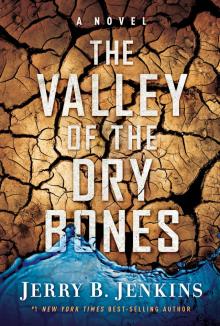 The Valley of Dry Bones
The Valley of Dry Bones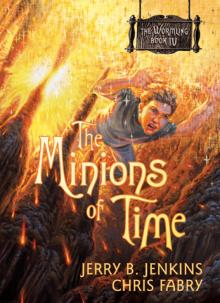 The Minions of Time
The Minions of Time Wild Rescue
Wild Rescue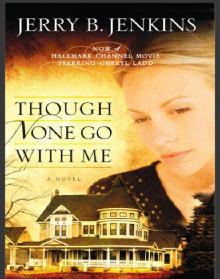 Though None Go with Me
Though None Go with Me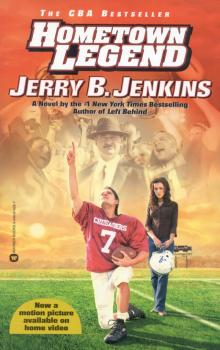 Hometown Legend
Hometown Legend The Breakthrough
The Breakthrough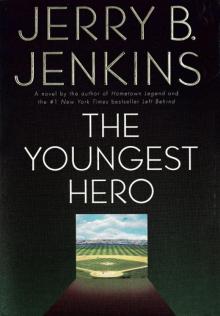 The Youngest Hero
The Youngest Hero Nicolae High
Nicolae High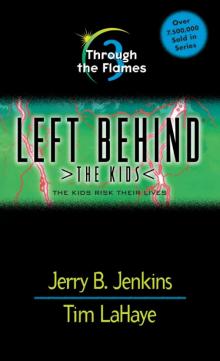 Through the Flames
Through the Flames The Brotherhood
The Brotherhood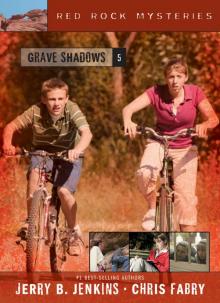 Grave Shadows
Grave Shadows The Changeling
The Changeling Shadowed
Shadowed Precinct 11 - 01 - The Brotherhood
Precinct 11 - 01 - The Brotherhood Second Chance
Second Chance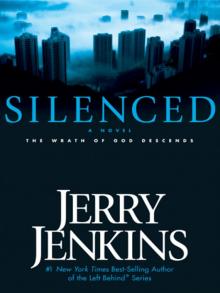 Silenced
Silenced The Vanishings
The Vanishings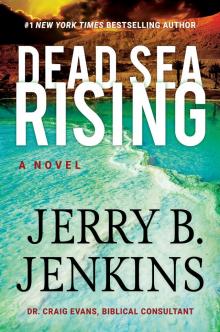 Dead Sea Rising
Dead Sea Rising Soon
Soon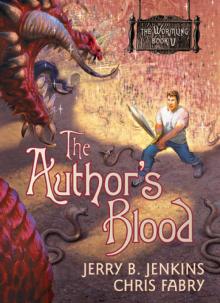 The Author's Blood
The Author's Blood The Sword of the Wormling
The Sword of the Wormling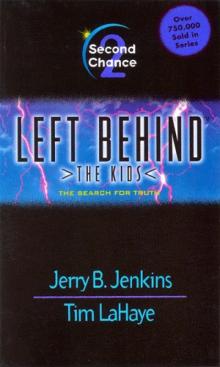 Left Behind - The Kids 02 - Second Chance
Left Behind - The Kids 02 - Second Chance Haunted Waters
Haunted Waters The Underground
The Underground Mark's Story
Mark's Story Shaken
Shaken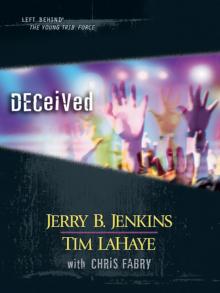 Deceived
Deceived Frantic
Frantic Riven
Riven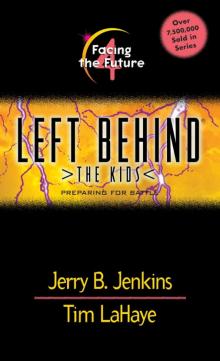 Facing the Future
Facing the Future Stung
Stung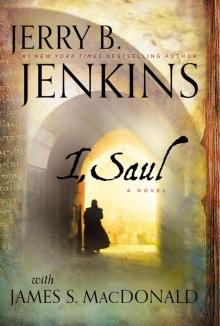 I, Saul
I, Saul Hunted
Hunted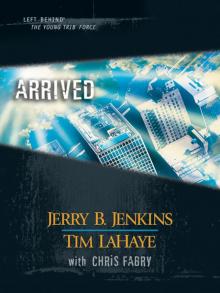 Arrived
Arrived John's Story
John's Story Stolen Secrets
Stolen Secrets